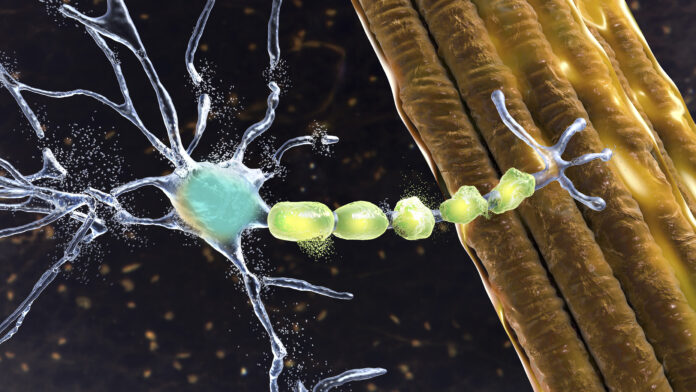
Broken String Biosciences and the Francis Crick Institute are partnering to develop novel applications for the start-up’s proprietary DNA break-mapping platform, INDUCE-seq, to investigate the impact of genomic instability in the development of amyotrophic lateral sclerosis (ALS). The partnership will examine DNA break-mapping technology and advance understanding of genomic instability in the development of ALS.
Felix Dobbs, PhD, CEO, Broken String Biosciences, said, “This collaboration with the Crick Institute is validation of our differentiated approach to DNA break-mapping; enabling our team to support world-leading research with insights provided through our INDUCE-seq platform. It demonstrates a fantastic opportunity to apply our expertise across other key research areas to support the advancement of human health.”
The collaboration combines the interests of Simon Boulton and Nishita Parnand, at the Crick, who are focused on genome stability and DNA double-strand break (DSB), with those of Rickie Patani and Giulia Tyzack, who are studying the underlying mechanism of ALS disease mechanism.
ALS is a progressive and debilitating neurodegenerative disease, causing gradual loss of the ability to control voluntary movements and basic bodily functions. The majority of ALS cases (~90%) are considered sporadic. While there has been progress to better understand the genes and biological markers associated with the disease, very little is understood about the causes, with current treatment strategies focused on symptom management and slowing disease progression.
About 25–40% of all familial cases (and a small percentage of sporadic cases) are caused by a defect in the C9orf72 gene. C9orf72 makes a protein found in motor neurons and nerve cells in the brain. Another 12–20% of familial cases result from mutations in the SOD1 gene. SOD1 is involved in the production of the enzyme copper-zinc superoxide dismutase 1.
Dobbs said, “There is an unmet clinical need for effective ALS treatments, as well as strategies for earlier diagnosis that can significantly improve patient outcomes. We look forward to working closely with Dr. Boulton and Professor Patani’s groups to support this critical research area and continue building out our application focuses.”
Broken String’s INDUCE-seq technology maps and characterizes DNA breaks using a proprietary PCR-free methodology for in situ break capture and sequencing by NGS. It reveals the breaks induced by any nuclease-based genome editing system with high precision and thus enables companies developing cell and gene therapies to measure and quantify off-target genetic edits, and evaluate the associated genetic outcomes.
Boulton said, “Our research is focused on exploring how cells repair damage to their DNA, and how failures in this process lead to disease. Following exploratory work with Reed, we were keen to collaborate with Broken String. We are excited to leverage the INDUCE-seq platform’s unique capabilities in directly measuring and quantifying DNA double-strand breaks, and applying this to deepen our understanding of diseases that have genomic instability as a contributing factor, such as ALS.” Boulton is principal group leader of the Boulton Lab (DSB Repair Metabolism) at the Francis Crick Institute.













